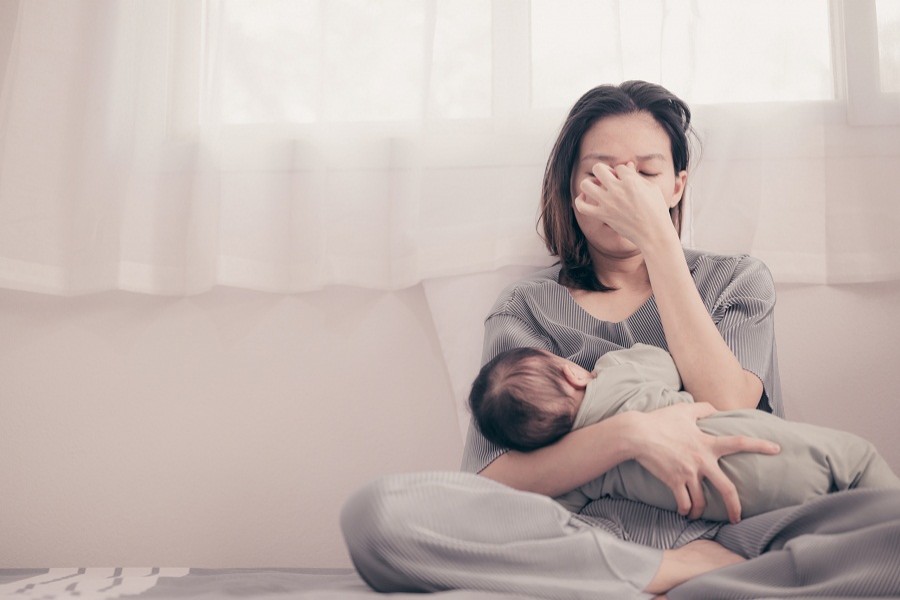
Published :
Updated :

As a mom, have you ever felt empty and hopeless following the birth of a child? How often was it ignored as a regular part of having a child? How often does the newborn baby become the centre of attention (nothing wrong with that), but at the mother's expense?
We have to take a hard look at these questions because postpartum depression is a serious issue often stigmatised and ignored in our society.
Having sad feelings following delivery is a common thing. It is called baby blues. Usually, this period passes within 3 to 5 days. However, sometimes they persist and become severe. This is known as postpartum depression or PPD.
PPD is recognised as a severe mental illness. It is often characterised by a feeling of emptiness and hopelessness starting in the first month of childbirth. However, sometimes it may start later, like even a year following delivery.
PPD is the most common psychological condition affecting mothers. In Asian countries, the prevalence varies between 3-65 per cent. Unfortunately, in Bangladesh, we have very limited information.
Researchers from James P Grant School of Public Health, BRAC University conducted a study on this issue. They studied urban slum women and found the prevalence of PPD to be 39.4 per cent, which is quite high.
The exact cause of PPD is still debated. Scientists think the hormonal changes associated with childbirth are linked to it. In addition, social, psychological and environmental factors play a facilitating role.
The risk is particularly high in certain groups, like women with a previous history of depression or bipolar disorder or similar family history. Women who lack an emotional support structure, who give birth at an early age (e.g. <20 years), have an unplanned or unwanted baby, and have drug addiction - are all at high risk. Having a previous difficult pregnancy, a specially-abled child, history of depression during pregnancy can also contribute to the risk.
So, how can we identify these patients? Some common symptoms, e.g. anxiety, loss of interest in previously exciting things, and even apathy shown to the baby are warning signs. The woman can also experience constant fatigue, the feeling of being 'on the edge' all the time, and a sense of worthlessness. They do not usually think clearly and lack focus.
These women have a problem bonding with the newborn. In extreme cases, they want to kill themselves and sometimes commit suicide with the baby.
PPD is extremely dangerous for the whole family. It negatively affects the child's development since the baby is often deprived of motherly care. The affected mother cannot adequately feed the baby, which may cause nutritional deficiency. If the family does not understand what the mother is going through, they will interpret the situation differently, which may worsen the whole thing.
We must remember that PPD is a mental health issue. Scolding the mother for being distracted or not taking proper care of the child will not help. The mental health needs of the new mother must be carefully considered and managed.
If PPD is suspected, a physician should be immediately consulted. Proper treatment is available, and if instituted timely, this can save the life of the mother and the baby. Therefore, we should all be aware of PPD and help to remove the stigma associated with it.
imtiazdmc@gmail.com


 For all latest news, follow The Financial Express Google News channel.
For all latest news, follow The Financial Express Google News channel.